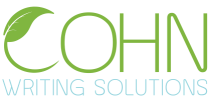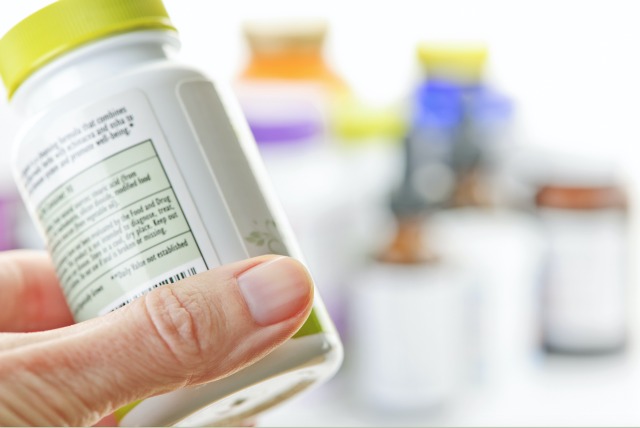I learned the hard way that the FDA can shut down a company because the placement of ads that promoted their dietary products were “too close” to articles in the company’s newsletter that discussed how the product’s ingredients could prevent specific conditions. For instance, “studies have found that fish oil can help prevent heart disease.” Whether that claim is true or false is not the issue.
According to the FDA’s rules and regulations for the dietary supplements industry, advertising and package copy must adhere to strict rules that allow structure/function claims. The Dietary Supplement Health and Education Act of 1994 (DSHEA) specifically established what you can and cannot say on a label. However, there are plenty of companies that get away with making illegal claims such as this: resveratrol prevents heart attacks or calcium reverses osteoporosis.
You don’t want to be one of them. If your company is eye balled by the FDA, you could be shut down. This will cost you big time because you will lose sales, momentum and will need to have all your marketing materials and package copy redone.
How to avoid compliance issues
A legal structure/function claim would use the words “supports” or “helps” and sound like this:
Resveratrol supports cardiovascular health, or calcium supports healthy bones rather than something like this: Resveratrol will prevent heart disease, stroke and heart attack.
A company that got into trouble
The Kellogg Company has agreed to pay $4 million dollars to settle a class action lawsuit over a misleading advertising campaign for its Frosted Mini-Wheats cereal. In 2008 and 2009, Kellogg’s claimed that the cereal Mini-Wheats could improve kids’ attentiveness, memory, and other cognitive functions by 11%— even though the sugary cereal doesn’t provide any of those benefits.
The sugary cereal does not provide any of those benefits and the add alerted the Federal Trade Commission (FTC), which filed a suit against Kellogg to prevent it from continuing to advertise misleading claims. The legal process that ended with compensation between $5 and $15 for Americans who submitted a claims form took years. That added up to $4 million dollars to settle the class action lawsuit.
Kellogg’s Special K ads have also been banned because of their over-zealous nutritious claims that were not supported with specific benefits.
Hopefully, Kellogg and other companies learned that it’s not always profitable to deliberately deceive the public about the benefits of consuming their product.
How do you determine if the claim on your product is permissible?
The FDA’s 11 criteria
- The claim may not suggest that the product has an effect on a specific disease or class of disease.
You CAN’T say that your Glucosamine product reduces the pain associated with osteoarthritis.
You CAN say that it helps maintain joint health and mobility. - A claim may not refer to a symptom of a disease or class of disease.
You CAN’T say that Policosanal reduces cholesterol.
You CAN say that Policosanol supports healthy blood lipids. - References to signs and/or symptoms of natural states are permissible as long they are not uncommon and would not cause significant harm if left untreated.
You CAN’T say that a product helps alleviate chronic constipation or male potency problems.
You CAN say that the product supports regularity.
You CAN say that the product enhances sexual arousal and performance. - A claim cannot be disguised as a product name.
You CAN’T name a product Migraine Relief or Arthritis Formula.
You CAN name a product Easy Comfort or Joint Flex. - A claim cannot refer to a supplement’s formulation if the statement suggests that the product is/was an FDA-regulated drug.
You CAN’T say “This product contains L-carnitine, formerly only available as a prescriptive drug.”
You CAN say This product contains vital amino acids, and then list them. - Citations to an article that refers to a disease in its title are permissible if the labeling taken as a whole does not imply a disease prevention or treatment claim.To ensure compliance with this criterion, the article should not be characterized in the copy; should appear at the end of the promotional materials as part of a bibliography of other articles; the article should be balanced; and should not appear upon the product’s label.
- Additionally, a bibliography that contains more than an insignificant number of articles that refer to a particular disease would be considered suspect by FDA and should be avoided. The use of the terms disease, diseases, antiviral, antibacterial, antiseptic, antibiotic, analgesic, diuretic, antidepressant, vaccine, analgesic, or any other word suggesting that the product belonged to a class of products intended to cure, treat, or prevent disease, is not permitted. Examples of impermissible claims are: • Stimulates the bodies antiviral capacity. • Helps Individuals using antibiotics maintain normal intestinal flora. • Helps alleviate depression. Examples of permissible claims are: • Helps maintain proper immune function. • Helps reduce stress and tension. • Restores intestinal flora.
- You CAN NOT use pictures, symbols or other means in a matter that would suggest the presence of a disease condition. For example, the picture of a hand with the joints highlighted in red could be interpreted as a disease condition of the joints. Using the heart symbol on a product label would also not be allowed because it would imply the product prevents heart disease. Instead, a picture of hand would be allowed.
- A claim cannot suggest that the supplement of its ingredients belong to a particular class of drugs or is a substitute for a particular therapy. You CAN NOT claim the product is an herbal antidepressant. You CAN NOT say the product helps maintain joint health without the use of NSAIDs.
- A claim may not suggest that a product is useful as a companion to regular drug therapy, or that it prevents or treats adverse events associated with a disease if the adverse events are also disease conditions. You CAN NOT say a product helps stimulate immune function while undergoing chemotherapy. You CAN NOT say a product helps individuals who are dependent on insulin maintain healthy blood sugar levels. You CAN say that a product supports healthy immune function. You CAN say that a product, when used as part of a healthy diet, supports healthy blood sugar levels.
- The FDA adds a final catch-all criterion that prohibits the use of a claim that “otherwise” suggests a disease or disease condition.
————————
Cohn Writing Solutions can help with your labeling and health claims. Leave the work to us. We are the master copywriters with expertise in structure/function health claims. Call or email us today for a free initial consultation. Link to contact page





